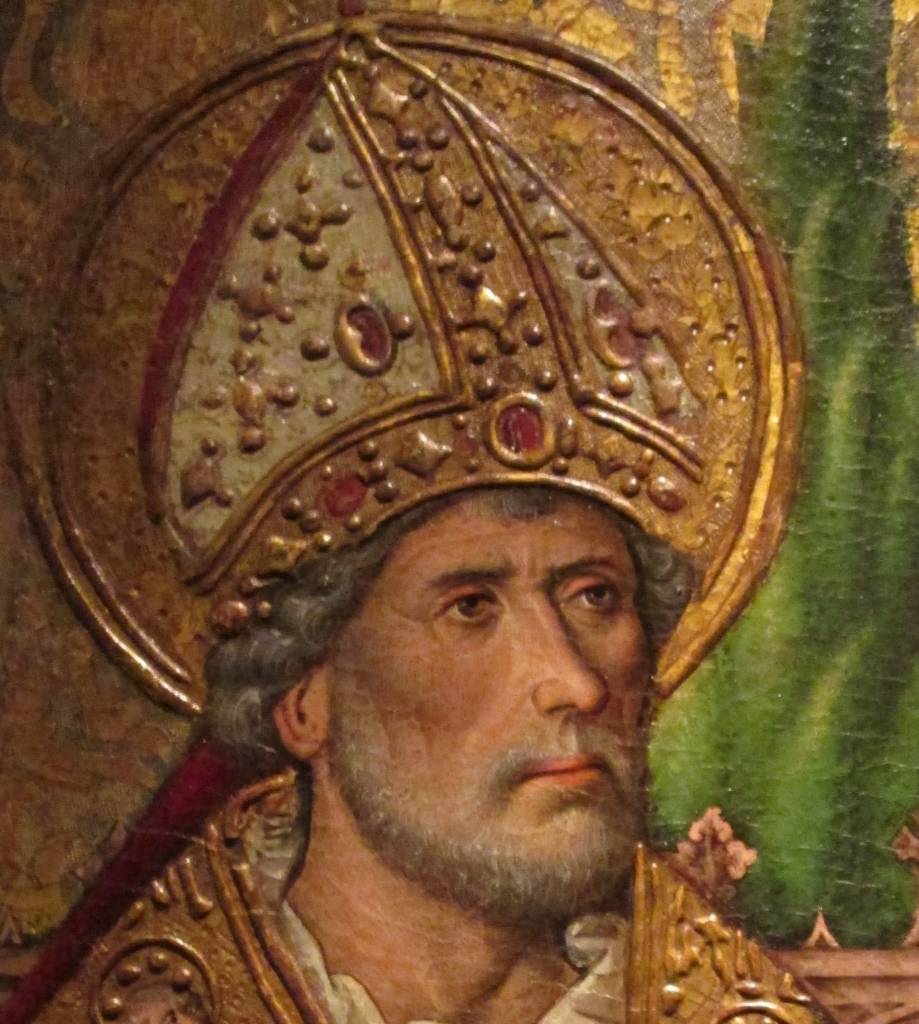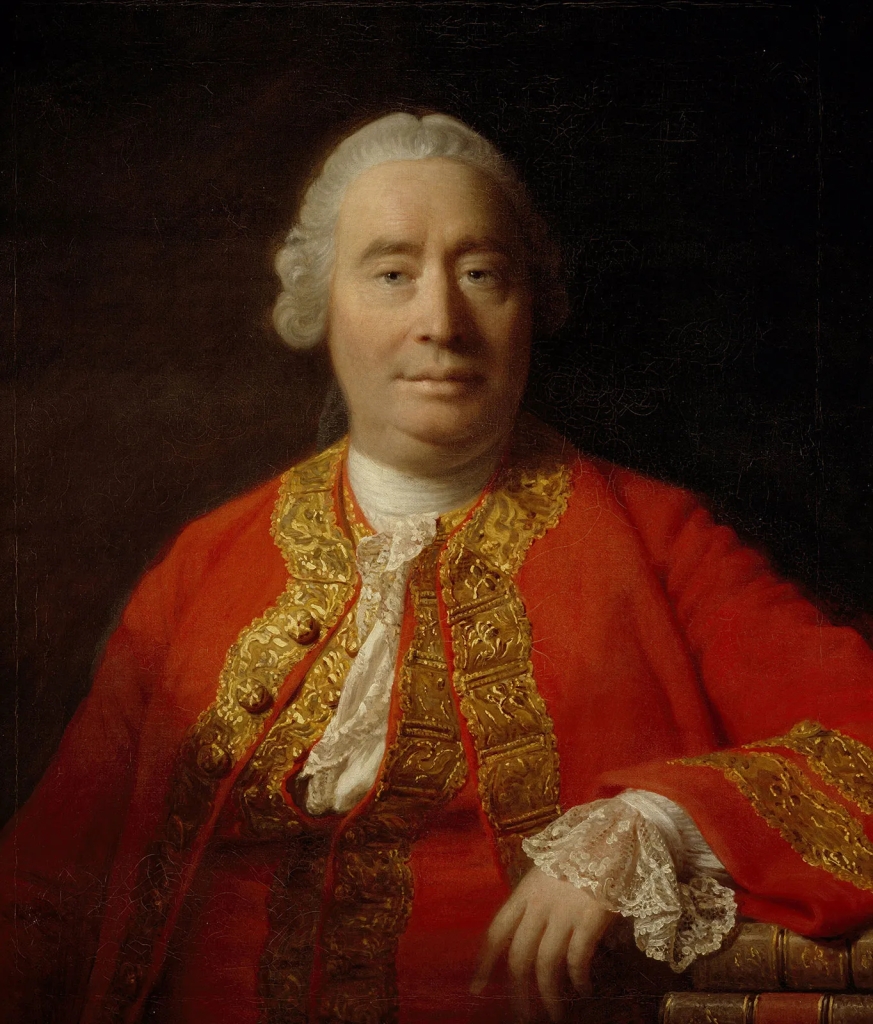Disclaimer: I had started planning this post in December of 2022. However, various personal commitments prevented me from finishing what I had started over the past few or so months. Apologies for the delay in posting.
In my spare time, I decided to read one of the shorter books of Saint Augustine of Hippo. That book would be De Fide Rerum Quæ Non Videntur (Concerning Faith of Things Not Seen). You can find the translation in NPNF1 Vol. III (New Advent, CCEL, Wikisource), and also in a 1950 version published by CUA Press (Google Books). For this article I will use the latter version even though I usually use NPNF for these kinds of posts, since here the NPNF translation is a little harder to read.
As the title would imply, the book (or rather, tract) is about faith in things we can’t see. Augustine argues against the idea that you need to see something to reasonably believe in it. However there is one part where Augustine goes in a direction I did not expect from this tract, that being how all civilized society could collapse in on itself. Here is the relevant passage (with underlining done by me):
Augustine’s words.

If this faith in respect to human affairs is removed, who will not mark what great disorder will follow? For who will be cherished by anyone in mutual charity, since love itself is invisible, if what I do not see I ought not to believe? Friendship, then, will completely perish, since it is established solely on mutual love. For will one be able to recieve any love from another, if it is believed that no love can be shown? Furthermore, if friendship perishes, the bonds of neither marriage nor of relationship nor of affinity will be held intact in the mind, because in these also, obviously, there is loving agreement. Then a husband and wife will not be able to love each other, since they do not believe that they are loved because they cannot see love itself. Nor will they desire to have children, who likewise they do not believe will return their love. And if children should be born and grow up, their very parents love their children less, for they will not see filial love in their children’s hearts, because it is invisible, if it be through reprehensible rashness rather than through praiseworthy faith that unseen things are believed.
What shall I saw now of the other relationships, of brothers, sisters, sons-in-law, fathers-in-law, and of those joined by any degree of relationship in blood or marriae, if charity is uncertain and affection suspected, both on the part of parents towards their children and on that of children towards their parents, and if due kindness is not rendered because it is not thought to be due, since the love in another which is not seen is not believed to exist? Besides, if this kind of caution is not shrewd, but rather odious, when we do not believe that we are loved because we do not see the love of those who love us, and when we do not think that we owe a mutual love, to such a degree will human affairs be disturbed, if we do not believe what we do not see, that they will be thrown into utter confusion if we should have no faith in the dispositions or intentions of men, which, of course, we cannot see.
I will not mention how many things those who rebuke us for believing what we do not see believe on the basis of rumor or history, or about places where they themselves have never been. In such cases they do not say, “We do not believe because we have not seen.” Because, if they say this, they are compelled to admit that they are uncertain about their own parents, since in this regard they have believed those who report the fact but are unable to exhibit it is already past, and although they retain no consciousness of that time themselves, yet, without any hesitation, they give assent to what others tell them about it. But if this were not done, a faithless lack of reverence towards parents would necessarily develop, while a credulous belief in those things which we cannot see is, as they hold, being avoided.
Since, therefore, merely human society, through the destruction of concord, will not remain stable, if we do not believe what we do not see, how much more ought faith be placed in divine things, even if they are not seen! If this faith is not exercised, it is not the friendship of certain men that is violated, but the highest religious obligation itself, and the deepest misery will necessarily follow.
Augustine of Hippo. De Fide Rerum Quæ Non Videntur, §4. (See, pp. 87 and 89 of the CUA Press version.) Underlining by me and not in the original.
My commentary.
In summary, Augustine is arguing that, if we only believed in those things that we could see for ourselves, we would have no reason to believe that any other person might love us (whether platonically, familially, or romantically). Without the bond of trusting love, so says Augustine, all of society would collapse as nobody would have any trust for one another.
Augustine wrote this passage as a retort to the claim that we should not believe in God because we cannot see him, a claim still raised by skeptics today. Later on in this book, Augustine would continue his argument and say that we actually can see evidence of God.
However, this passage in particular stands out to me because it almost feels like a prediction, even if it was not intended as such.

Centuries after Augustine’s time, the world would turn to a skeptical outlook towards the supernatural. This move towards philosophical skepticism started to take it’s modern shape in the “Enlightenment” of the 1700s.
As an illustration, see the claim of David Hume, a Scottish thinker and critic of Christian theism, who said that “all knowledge degenrates into probability” in 1739. (See, A Treatise of Human Nature, 1.4.1 (p. 180); avaliable on davidhume.org.)

In the present day, it is quite common for atheists to argue that they should not believe in God because they cannot see physical evidence of him. There is a decently famous 1975 Soviet poster depicting an astronaut in space with the caption “There is no God!” (“— Бога нет!”), pictured on the left. Even among atheists who are no fans of the USSR, a similar sort of attitude is still common: if I can’t see and touch God with my own senses, then why should I believe that he’s real?
I won’t try to respond to that argument in full here; other people far more learned than me have tacked that subject.
However, I will remind the reader of what Augustine said would happen if nobody believed in things they couldn’t sense for themselves. He predicted that friendship, marriage, family, nation, and all other bonds that humans have with one another will dissolve. It would be utter chaos!
Interestingly, notice how Augustine introduces this idea: he focuses on the family. To him, the source of so much stability in our society stems from the family unit. Therefore, to rend apart the family will rend apart all social order.
(SIDENOTE: Before someone tries to quote one of Jesus Christ’s sayings about tearing apart families, let me redirect them to “Church Fathers on ‘Hate Father and Mother’ (Luke 14.26).” Anyone can quote scripture without context.)
Augustine warned that “husband and wife will not be able to love each other” in a faithless world. Now, what’s happening with marriages in our present age?
Divorce rates, in the United States at least, kept climbing throughout the whole 20th century (Source: Insider, 30 Jan. 2019). It only began to go down in this 21st century, but that’s only because many young people simply aren’t getting married in the first place (Source: Time, 25 Sept. 2018). This isn’t just isolated to the United States, either; see the below charts:


However, something I find particularly interesting is that, before even mentioning marriage, Augustine warned us that friendship will dissolve. “Friendship, then, will completely perish, since it is established solely on mutual love.”

It is interesting that Augustine used friendship as a jumping-off point to discuss marriage. I am reminded of the words of C.S. Lewis: “To the Ancients, Friendship seemed the happiest and most fully human of all loves; the crown of life and the school of virtue. The modern world, in comparison, ignores it.” (See, The Four Loves, “IV. Friendship,” p. 70; avaliable on fadedpage.com.)
Lewis noticed that few people cared about friendship in his own day in the 1960s. Has anything changed since then? Yes it has. All we need to do is check some headlines:
- “Americans have fewer friends than ever before: study” (New York Post, 27 Jul. 2021)
- “If you have no close friends at all, you’re not alone: Our post-pandemic social lives in data” (euronews, 15 Feb. 2023)
- “The consequences of the friendship gap” (wbur, 23 Feb. 2022)
Sure, a lot of this can be blamed on the COVID-19 pandemic, but all the articles I listed above explain how the problem goes much deeper than that. Friendships have been declining far before 2020; recent events have only worsened the problem.
Friendships are important. They may not seem as crucual as marriage or family bonds, but the kind of love displayed in those relationships operates on the same kind of trust that friendships do.

If Augustine saw our society today, I think he would notice that so many of our bonds of love have been eroded. Maybe he would think it’s the end times; after all, the Lord Jesus Christ warned us that such bonds will erode (Matt. 10.21 ESV). Plus, we have such political instability. Hatred is growing more common than it was decades ago.
I think he would also notice that our faith in God has eroded. Perhaps he would connect the two?
I don’t want you to get the wrong idea; I’m not saying that the sole reason someone has marital problems or has trouble finding friends is because they don’t trust in God enough. Obviously there are numerous factors that lead to worsened social lives. Everybody singing the Lord’s Prayer and Apostles’ Creed won’t magically fix everything.
What I am saying is that the decline in friendship, the decline in marriage, and the decline in religiosity can be traced back to one thing: a lack of trust.
The essence of all forms of faith — in God, in one’s spouse, or in one’s neighbour — is trust. To follow God, we must trust that he is there. To stay with one’s spouse, we must trust that they love us. To keep a friendship, we must trust our friends.
Likewise, in order to have a stable society, we must trust one another.
